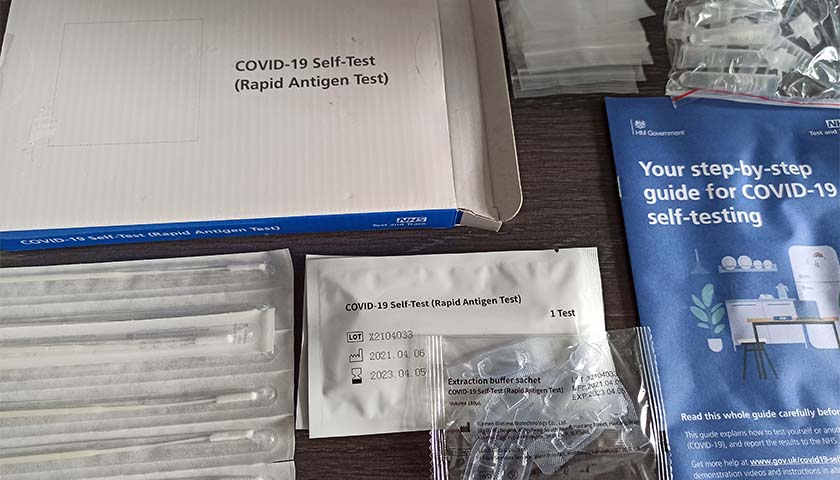Pennsylvania already exempts many medical supplies from its sales tax, but not COVID tests, a discrepancy legislation by Sen. Mario Scavello (R-East Stroudsburg) would eliminate.
Scavello’s bill would except rapid at-home COVID-19 antigen tests from the state’s six-percent sales levy. Healthcare devices, services and substances all generally don’t get taxed in the Keystone State.
“With most essential clothing and medical supplies already exempt from sales tax in Pennsylvania,” the senator wrote in a memorandum describing his proposal, “it seems inconsistent for the Commonwealth to be charging Pennsylvania’s consumers, who are making a good-faith effort to know if they have COVID-19 and to protect their family, friends and neighbors against COVID-19 by purchasing at-home tests.”
The tests, also known as over-the-counter COVID-19 tests, involve taking a swab from the nose or mouth and typically yield a result within a matter of minutes. They have gained popularity as people have reportedly had difficulties getting appointments for polymerase chain reaction (PCR) tests, though the latter are considered more reliable.
Increased cases have also fueled demand for COVID testing in Pennsylvania. On New Year’s Eve, the state recorded 23,368 new positive coronavirus tests, a record high in Pennsylvania. New coronavirus deaths have also risen over the last several weeks, peaking at 304 on Dec. 29, the highest number of daily COVID fatalities since the state reported 405 deaths last Jan. 20.
While the mortality rate has moved in tandem with the infection rate in Pennsylvania, however, a similar trend has yet to become apparent in nationwide COVID statistics. While the national daily viral caseload reached a record high of 572,265 on Dec. 30, nationwide daily fatalities have yet to approach the 2,701 that topped the surge seen during late summer and early autumn. Daily nationwide deaths remain far below the 4,443 record number that they reached last Jan. 21.
Studies have detected an apparent general decrease in severity due from COVID-19’s omicron variant, now the dominant form of the novel coronavirus in the U.S. Several studies on laboratory animals show the specimens suffering milder infections, with damage limited to the nose, throat and trachea. Earlier viral variants were shown to cause lung impairment and acute respiratory problems.
The Journal of the American Medical Association reported a study last week indicating that patients hospitalized with omicron faced vastly lower likelihood of death. Even the Biden administration has acknowledged that fatalities from omicron have fallen relative to the previous delta variant.
“The rapid increase of cases we’re seeing across the country is, in large part, a reflection of the exceptionally transmissible omicron variant,” Centers for Disease Control and Prevention Director Rochelle Walensky said at a White House briefing last week. “While our cases have substantially increased from last week, hospitalizations and deaths remain comparatively low right now.”
– – –
Bradley Vasoli is managing editor of The Pennsylvania Daily Star. Follow Brad on Twitter at @BVasoli. Email tips to [email protected].
Photo “COVID Test” by Marc Auledas. CC BY-SA 4.0.





